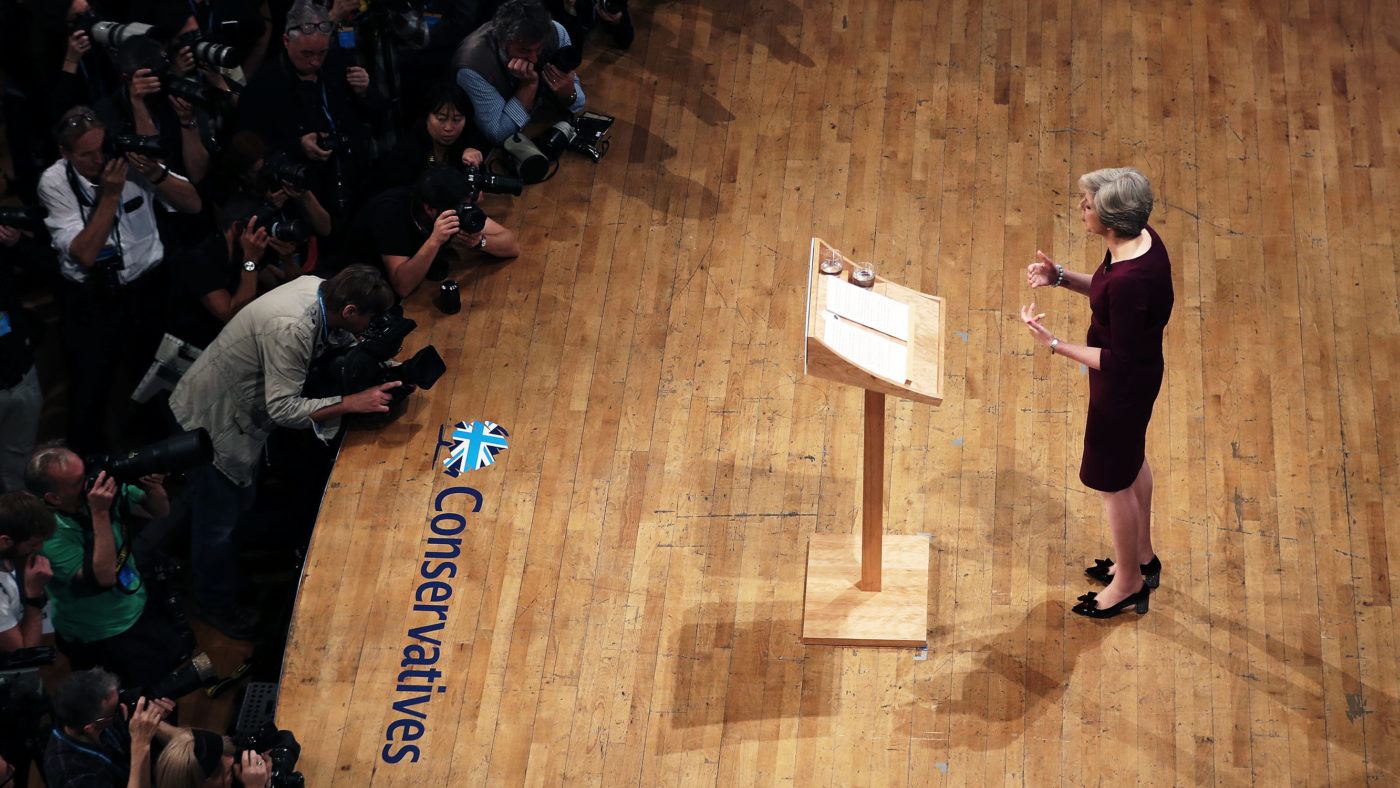All party conferences show all parties at their worst. If you remember that, everything we have seen in Birmingham this week, like everything we saw in Liverpool last week, begins to make sense. Even so, it remains startling to think that, just four months ago, the Conservative party was supposed to be split, riven by Europe-related disagreement.
Those battles have been settled. The party’s inherent pragmatism – its will to power – has asserted itself once again. The doubters – and there are still many of those – are keeping their heads down. They’ve lost and they know it. This is a Brexit party now, blue in tooth and claw.
So it seemed telling that even notable Remainers such as Amber Rudd were resolutely on message. Indeed, when Rudd suggested “naming and shaming” firms who employ too many foreigners, there was a faint whiff of a minister over-compensating for her past deviations from what is now Tory orthodoxy.
If this was ugly, it was also more likely a signal of intent than a declaration of real policy. Even so, as Theresa May’s speech confirmed, this is not David Cameron’s party any longer.
All newly-installed prime ministers must define themselves against their predecessors, of course, but you could be forgiven for thinking that May thinks there’s something discreditable, even distasteful, about the government in which she served for six years. There was a sense in Birmingham of an older, more robust, Conservatism reasserting itself. The Cameron era – defined by coalition but also by the uneasy compromise between the so-called modernisers and the party’s old guard – has been punted into the long grass of history.
There was always, by dint of his background and temperament, a vague sense that Cameron offered an AB Conservatism; May’s Toryism, by contrast, is of the C1C2 variety. She leads a government that will disapprove a little more and sympathise a little less. “If you believe you’re a citizen of the world, you’re a citizen of nowhere,” she said and it was hard not to think this was meant as an icy rebuke of her predecessor.
This conference was not so much the twilight of the modernisers as their eclipse, not just in terms of substance but, just as important, in terms of style. The Theresa May who warned that the Tories were seen as “the nasty party” now feels able to taunt Labour with the same label. And she did so at a conference dominated by the parade of ministers boasting about how they could best be beastly to foreigners. The idea that Brexit owed little or nothing to fears – sorry, “concerns” – about immigration was soundly refuted in Birmingham this week. The party has concluded that it was immigration that ruined Cameron and it has no desire to repeat that blunder. No wonder there were times this seemed as much a Ukip conference as a Tory one.
Given the choice between economic liberalism and a crackdown on immigration, the government has chosen the latter. This is hardly something unique to Britain. Similar patterns may be seen in most other western countries. This should trouble buccaneering Brexiteers who see a glorious new era of free trade; the prevailing winds currently blow from the other direction. An era of extraordinary openess appears to be coming to an end. Never mind a hard or soft Brexit – that seems to have been settled in favour of the former – it might, despite protestations to the contrary, prove to be a closed Brexit, not an open one.
May-ism, to the extent such a thing exists, is doggedly suburban. It views the city – and the City – with suspicion and definitely mistrusts “elites”. As her hint about intervening in the energy market demonstrated, she promises a chivvying government, not a chillaxing one. She caricatured the views of the Remain camp as people who look down on the working-class. It was easy to forget that, at least nominally, May was a Remain voter too.
There was a hint of Richard Nixon or Pat Buchanan when she lashed those who supposedly sneer at the common man. The elites, she said, find the “patriotism [of ordinary people] distasteful, their concerns about immigration parochial, their views about crime illiberal, their attachment to their job security inconvenient”. That’s one in the eye for the Financial Times and a bonanza for The Sun.
In her own way, then, May is a populist, albeit one marked by a stern, even matronly, moralising. Perhaps this should not surprise. She was home secretary for six years, after all. Her record there is instructive. She backed the so-called “snooper’s charter”, but also challenged vested producer interests. Remember that at the Home Office she confronted the police time and time again. Something that would be notable for any home secretary, let alone a Tory one. So this Prime Minister is not afraid of fighting.
The Conservatives, she said, are “the party of the NHS, the party of public services… the party of workers”. In the absence of a credible or even functioning Opposition, there may be something to this, but it is still a bold claim. But this is her bet: economic interventionism plus patriotic populism will leave Labour with nowhere to go even if Labour showed any sign of wanting to go anywhere. It is not so much occupying the centre ground as redefining it.
Theresa May offers, in many ways, White Van Conservatism remade for an age of uncertainty. Muscular, unashamed, preachy, and very, very English.


